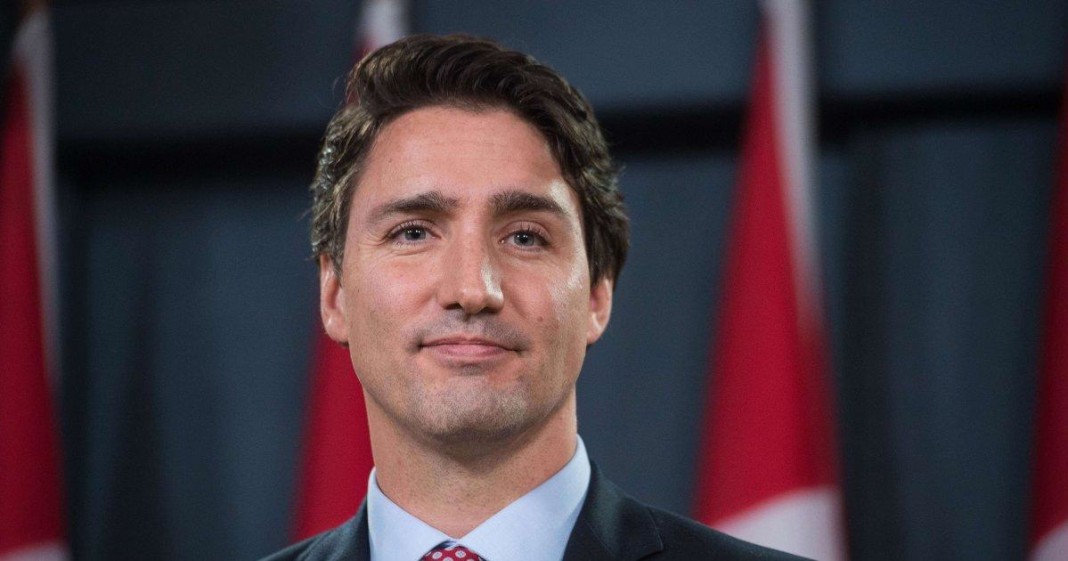Canada has produced its share of ferocious warriors (as witness the Battle of Passchendale in 1917 and Juno Beach during D-Day in 1944). Canadian military personnel were involved in the Korean Conflict and had a presence in Vietnam. Canada has continued to participate in various peacekeeping missions throughout the decades – but has the distinction of not having been at a formal state of war since 1945. The Dominion has has always done its best to avoid committing large numbers of troops unless it was to prove absolutely necessary. This week, Canadian Prime Minister Justin Trudeau announced that his country would stop its participation coalition air strikes against the Islamic State (ISIS).
In announcing his decision to withdraw six Royal Canadian Air Force fighters from the Allied coalition, Prime Minister Trudeau said, “It is important to understand that while airstrike operations can be very useful to achieve short-term military and territorial gains, they do not on their own achieve long-term stability for local communities.” This is in keeping with his campaign promises last year to end RCAF bombing missions against ISIS in Iraq and normalize diplomatic relations with Iran. His actions are 180 degrees from those taken by his unpopular predecessor, former PM Stephen Harper.
Trudeau has also refused to commit Canadian combat troops to the fight against ISIS – even while the Obama Administration is sending 450 additional U.S. troops to the region as the situation worsens. Currently, the Islamic State controls approximately one-quarter of Iraq, and recently overran the city of Ramadi, putting them within sixty miles (100 kilometers) of Baghdad. PM Trudeau says, “10 years ago we learnt through the first Iraq war what happens when Western troops get involved in combat [in the region]. They don’t necessarily lead to the outcomes that people would responsibly like to see.”
While Canada is ending its own air combat operations in Iraq, the country will be sending an additional 120 officers and instructors in order to assist in the training of Iraqi ground troops in the northern region of the country. In addition, another 230 members of the Canadian Armed Forces will be deployed in addition to the 600 already stationed there. They will be acting primarily in support roles for coalition partners, including aircraft maintenance and identifying targets. It remains to be seen as to whether or not Canadian troops will be actively engaged in combat operations. Trudeau plans on holding debates and a vote in Parliament next week as well as a review of Canada’s role in the fight against ISIS in 2018.
While most Canadians are pleased with their new Prime Minister’s actions, Canada’s right wing is not happy. Conservative columnist Andrew Coyne of the National Post wrote a scathing satirical op-ed piece earlier this week, while Conservative Party leader Rona Ambrose called it “a shameful step backward from our proud traditions by pulling Canada out of a combat role against the greatest terror threat in the world.” Hélène Laverdière, a member of the New Democratic Party also expressed concerns about committing Canadian troops to “an open-ended combat mission in Iraq.” She questions “tripling the size of so-called advisers to the Iraqi military, with some forces working in a ‘battlefield context’ and others working to ‘enhance in-theatre tactical transport’,” and believes Canadian citizens should have more information on their PM’s decisions.
Trudeau emphasizes that Canada’s mission is “an advise-and-assist mission that our trainers will be engaged in,” assuring his country that “this is a non-combat mission.” To date, one Canadian special-forces commando has been killed in action, while three others have been wounded in a “friendly fire” incident. General Jonathan Vance, Trudeau’s Chief of Defence, added his voice to that of the Prime Minister: “The Prime Minister has clearly described it as non-combat. In my view, it’s a non-combat mission in that we are not the principal combatants here.”
Here in the U.S., President Obama publicly endorsed Prime Minister Trudeau’s decision. Through a State Department spokesperson, he said, “The new Canadian commitment is in line with our current needs, including tripling their training mission in Northern Iraq and increasing their intelligence efforts.” However, the Obama Administration has not ruled out asking more from Ottawa in the future.




![Senator Schumer: “Single Payer [Health Care] is On The Table”](https://sandbox.trofire.com/wp-content/uploads/2017/07/Universal-Healthcare-218x150.jpg)